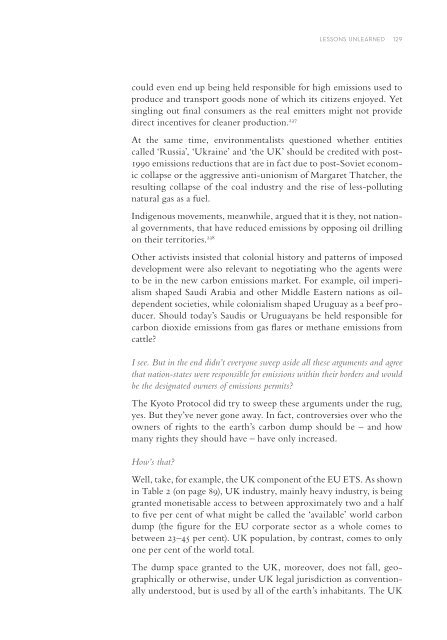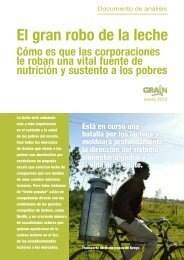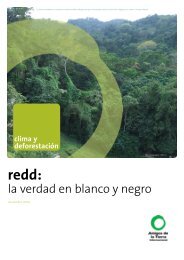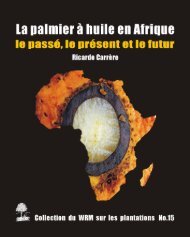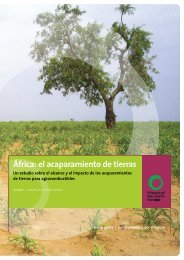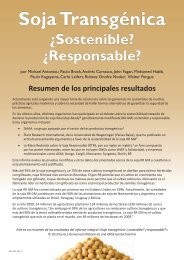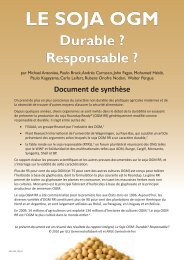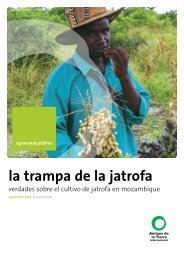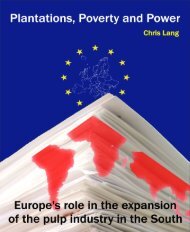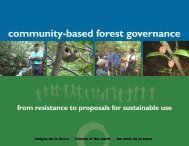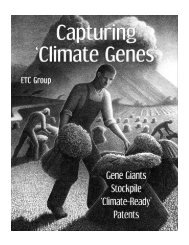- Page 1 and 2:
a critical conversationon climate c
- Page 3 and 4:
ContentsEditorial note 2Chapter 1 I
- Page 5:
editorial note 3in Dorset, UK - poi
- Page 8 and 9:
6 development dialogue september 20
- Page 10 and 11:
8 development dialogue september 20
- Page 12 and 13:
10 development dialogue september 2
- Page 14 and 15:
12 development dialogue september 2
- Page 16 and 17:
14 development dialogue september 2
- Page 18 and 19:
16 development dialogue september 2
- Page 20 and 21:
18 development dialogue september 2
- Page 22 and 23:
20 development dialogue september 2
- Page 24 and 25:
22 development dialogue september 2
- Page 26 and 27:
24 development dialogue september 2
- Page 28 and 29:
26 development dialogue september 2
- Page 30 and 31:
28 development dialogue september 2
- Page 34 and 35:
32 development dialogue september 2
- Page 36 and 37:
34 development dialogue september 2
- Page 38 and 39:
36 development dialogue september 2
- Page 40 and 41:
38 development dialogue september 2
- Page 42 and 43:
40 development dialogue september 2
- Page 44 and 45:
42 development dialogue september 2
- Page 46 and 47:
44 development dialogue september 2
- Page 48 and 49:
46 development dialogue september 2
- Page 50 and 51:
48 development dialogue september 2
- Page 52 and 53:
50 development dialogue september 2
- Page 54 and 55:
52 development dialogue september 2
- Page 56 and 57:
54 development dialogue september 2
- Page 58 and 59:
56 development dialogue september 2
- Page 60 and 61:
58 development dialogue september 2
- Page 62 and 63:
60 development dialogue september 2
- Page 64 and 65:
62 development dialogue september 2
- Page 66 and 67:
64 development dialogue september 2
- Page 68 and 69:
66 development dialogue september 2
- Page 70 and 71:
68 development dialogue september 2
- Page 73 and 74:
Chapter 3Lessons unlearnedIn which
- Page 75 and 76:
lessons unlearned 73Property rights
- Page 77 and 78:
lessons unlearned 75of the emission
- Page 79 and 80: lessons unlearned 77It’s not so s
- Page 81 and 82: lessons unlearned 79his place. The
- Page 83 and 84: lessons unlearned 81‘The creation
- Page 85 and 86: lessons unlearned 83‘Temporary’
- Page 87 and 88: lessons unlearned 85Utility Commiss
- Page 89 and 90: lessons unlearned 87trading, includ
- Page 91 and 92: lessons unlearned 89Table 2. Quasi-
- Page 93 and 94: lessons unlearned 91While most asse
- Page 95 and 96: lessons unlearned 93and 290-545 for
- Page 97 and 98: lessons unlearned 95What do you mea
- Page 99 and 100: lessons unlearned 97reaching, unifo
- Page 101 and 102: lessons unlearned 99monitoring of i
- Page 103 and 104: lessons unlearned 101Yes. But that
- Page 105 and 106: lessons unlearned 103oranges into a
- Page 107 and 108: lessons unlearned 105yet, maybe no
- Page 109 and 110: lessons unlearned 107It’s hard to
- Page 111 and 112: lessons unlearned 109fact involved
- Page 113 and 114: lessons unlearned 111‘Locking in
- Page 115 and 116: lessons unlearned 113Figure 3. A Vi
- Page 117 and 118: lessons unlearned 115Climate and th
- Page 119 and 120: lessons unlearned 117power, for ins
- Page 121 and 122: lessons unlearned 119Does Emissions
- Page 123 and 124: lessons unlearned 121No empirical e
- Page 125 and 126: lessons unlearned 123only make it w
- Page 127 and 128: lessons unlearned 125And probably y
- Page 129: lessons unlearned 127flow of fossil
- Page 133 and 134: lessons unlearned 131But how much h
- Page 135 and 136: lessons unlearned 133‘Little’ P
- Page 137 and 138: lessons unlearned 135Or the World R
- Page 139 and 140: lessons unlearned 137The special pr
- Page 141 and 142: lessons unlearned 139Still other du
- Page 143 and 144: lessons unlearned 141But doesn’t
- Page 145 and 146: lessons unlearned 143So CDM schemes
- Page 147 and 148: lessons unlearned 145carbon money.
- Page 149 and 150: lessons unlearned 147‘The CDM wil
- Page 151 and 152: lessons unlearned 149based credit m
- Page 153 and 154: lessons unlearned 151scrapped, the
- Page 155 and 156: lessons unlearned 153Sinks, biophys
- Page 157 and 158: lessons unlearned 155kilometres ben
- Page 159 and 160: lessons unlearned 157Figure 7. Poss
- Page 161 and 162: lessons unlearned 159• In early 2
- Page 163 and 164: lessons unlearned 161But such credi
- Page 165 and 166: lessons unlearned 163subtropical ca
- Page 167 and 168: lessons unlearned 165Figure 8. Shar
- Page 169 and 170: lessons unlearned 167Ownership agai
- Page 171 and 172: lessons unlearned 169identified in
- Page 173 and 174: lessons unlearned 171cen turies, ye
- Page 175 and 176: lessons unlearned 173Who Owns Fores
- Page 177 and 178: lessons unlearned 175How?The pollut
- Page 179 and 180: lessons unlearned 177Innovation, th
- Page 181 and 182:
lessons unlearned 179I don’t agre
- Page 183 and 184:
lessons unlearned 181carbon credits
- Page 185 and 186:
lessons unlearned 183Segments of th
- Page 187 and 188:
lessons unlearned 185pet schemes, e
- Page 189 and 190:
lessons unlearned 187Where’s the
- Page 191 and 192:
lessons unlearned 189of cheating po
- Page 193 and 194:
lessons unlearned 191face to the pu
- Page 195 and 196:
lessons unlearned 193are those area
- Page 197 and 198:
lessons unlearned 195atmospheric ca
- Page 199 and 200:
lessons unlearned 197it would have
- Page 201 and 202:
lessons unlearned 199inadequate val
- Page 203 and 204:
lessons unlearned 20123 Timothy Mit
- Page 205 and 206:
lessons unlearned 20388 Frantisek B
- Page 207 and 208:
lessons unlearned 205147 Adam B. Ja
- Page 209 and 210:
lessons unlearned 207183 Lipow, op.
- Page 211 and 212:
lessons unlearned 209237 Bastianoni
- Page 213 and 214:
lessons unlearned 211275 CEE Bankwa
- Page 215 and 216:
lessons unlearned 213Thermostat’,
- Page 217 and 218:
lessons unlearned 215398 Ibid. See
- Page 221 and 222:
Chapter 4Offsets - The fossil econo
- Page 223 and 224:
offsets - the fossil economy’s ne
- Page 225 and 226:
offsets - the fossil economy’s ne
- Page 227 and 228:
offsets - the fossil economy’s ne
- Page 229 and 230:
offsets - the fossil economy’s ne
- Page 231 and 232:
offsets - the fossil economy’s ne
- Page 233 and 234:
offsets - the fossil economy’s ne
- Page 235 and 236:
offsets - the fossil economy’s ne
- Page 237 and 238:
offsets - the fossil economy’s ne
- Page 239 and 240:
offsets - the fossil economy’s ne
- Page 241 and 242:
offsets - the fossil economy’s ne
- Page 243 and 244:
offsets - the fossil economy’s ne
- Page 245 and 246:
offsets - the fossil economy’s ne
- Page 247 and 248:
offsets - the fossil economy’s ne
- Page 249 and 250:
offsets - the fossil economy’s ne
- Page 251 and 252:
offsets - the fossil economy’s ne
- Page 253 and 254:
offsets - the fossil economy’s ne
- Page 255 and 256:
offsets - the fossil economy’s ne
- Page 257 and 258:
offsets - the fossil economy’s ne
- Page 259 and 260:
offsets - the fossil economy’s ne
- Page 261 and 262:
offsets - the fossil economy’s ne
- Page 263 and 264:
offsets - the fossil economy’s ne
- Page 265 and 266:
offsets - the fossil economy’s ne
- Page 267 and 268:
offsets - the fossil economy’s ne
- Page 269 and 270:
offsets - the fossil economy’s ne
- Page 271 and 272:
offsets - the fossil economy’s ne
- Page 273 and 274:
offsets - the fossil economy’s ne
- Page 275 and 276:
offsets - the fossil economy’s ne
- Page 277 and 278:
offsets - the fossil economy’s ne
- Page 279 and 280:
offsets - the fossil economy’s ne
- Page 281 and 282:
offsets - the fossil economy’s ne
- Page 283 and 284:
offsets - the fossil economy’s ne
- Page 285 and 286:
offsets - the fossil economy’s ne
- Page 287 and 288:
offsets - the fossil economy’s ne
- Page 289 and 290:
offsets - the fossil economy’s ne
- Page 291 and 292:
offsets - the fossil economy’s ne
- Page 293 and 294:
offsets - the fossil economy’s ne
- Page 295 and 296:
offsets - the fossil economy’s ne
- Page 297 and 298:
offsets - the fossil economy’s ne
- Page 299 and 300:
offsets - the fossil economy’s ne
- Page 301 and 302:
offsets - the fossil economy’s ne
- Page 303 and 304:
offsets - the fossil economy’s ne
- Page 305 and 306:
offsets - the fossil economy’s ne
- Page 307 and 308:
offsets - the fossil economy’s ne
- Page 309 and 310:
offsets - the fossil economy’s ne
- Page 311 and 312:
offsets - the fossil economy’s ne
- Page 313 and 314:
offsets - the fossil economy’s ne
- Page 315 and 316:
offsets - the fossil economy’s ne
- Page 317 and 318:
offsets - the fossil economy’s ne
- Page 319 and 320:
offsets - the fossil economy’s ne
- Page 321 and 322:
With the help ofCarbon Trade Watch,
- Page 323 and 324:
offsets - the fossil economy’s ne
- Page 325 and 326:
offsets - the fossil economy’s ne
- Page 327 and 328:
offsets - the fossil economy’s ne
- Page 329:
offsets - the fossil economy’s ne
- Page 332 and 333:
330 development dialogue september
- Page 334 and 335:
332 development dialogue september
- Page 336 and 337:
334 development dialogue september
- Page 338 and 339:
336 development dialogue september
- Page 340 and 341:
338 development dialogue september
- Page 342 and 343:
340 development dialogue september
- Page 344 and 345:
342 development dialogue september
- Page 346 and 347:
344 development dialogue september
- Page 348 and 349:
346 development dialogue september
- Page 350 and 351:
348 development dialogue september
- Page 352 and 353:
350 development dialogue september
- Page 354 and 355:
352 development dialogue september
- Page 356 and 357:
354 development dialogue september
- Page 358 and 359:
AppendixClimate Justice Now!The Dur
- Page 360 and 361:
358 development dialogue september
- Page 362:
360 development dialogue september


